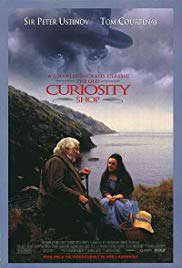Immediately after the movie, or at odd times over the next week (for example at the dinner table or in the car on the way to school) discuss addictions, including alcoholism and gambling addiction. The Discussion Questions, starting with the Quick Discussion Question in the sidebar, will be helpful. Don’t worry if you can only get through a few questions. Just taking the film seriously and discussing it is the key. Allow your child to watch the movie several times and continue to bring up discussion questions relating to the film.
Charles Dickens (1812-1870) was born in Portsmouth, England. His father’s consignment to debtor’s prison during Dickens’ early adolescence had far-reaching effects on him. Themes of poverty, child abandonment, and the overwhelming power of money are recurring themes in Dickens’ novels. In addition to his fictional works, Dickens wrote and lectured in favor of social reforms. He had ten children, but separated from his wife after 22 years of marriage. When he died, he was buried in Westminster Abbey.
Often, when one member of a family suffers from an addiction to alcohol, drugs or gambling, another member of the family tries to help the addict by protecting the addict from the consequences of the addiction. This is called “enabling” the addiction, because without the efforts of the “Enabler in Chief”, the addict could not maintain the addiction. Often, the “Enabler in Chief” also tries to get the addict to stop the addictive behavior, however, so long as the addict still uses or still gambles, these efforts have been ineffectual.
Another classic syndrome of codependence is that of the “Family Hero”. This is a person, usually a child, who tries to make up for the deficiencies of the addicted family member by being perfectly behaved and successful in society. The “Family Hero” believes, quite mistakenly, that if he or she acts perfectly, the addict will stop the addictive behaviors. The child says to him or herself, often subconsciously, “If I am perfect maybe daddy will stop gambling”. Nell combines aspects of both the “Enabler in Chief” and the “Family Hero”. For more on codependent relationships, see TWM’s handout Codependence — What Happens When a Family Member is an Alcoholic or a Drug Addict.


